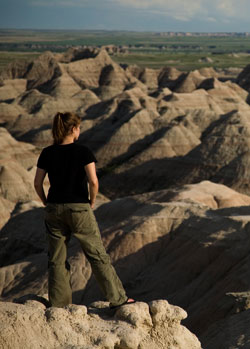|
|
||||||||||||||
|
|
|
 |
||||||||||||
 |
||||||||||||||
|
|
|
|
|
|
|
|
|
|
|
|
|
|
||
|
|
|
|
|
|
|
|
|
|
|
|
|
|
|
|
My Definintion
 While traveling across America, I often turn to Audiobooks to help pass the time during mindless stretches in between destinations. In my earlier years, Compact Discs were the source of music. I’d have to exchange the disc ever 40-75 minutes (than god I’m not a music surfer) so I’d have to set out a half dozen or so albums when I stopped for gas. Too often I’d go through the entire stack well before my next stop. Thank God MP3 players came out, and thank god books now come in audio.
While traveling across America, I often turn to Audiobooks to help pass the time during mindless stretches in between destinations. In my earlier years, Compact Discs were the source of music. I’d have to exchange the disc ever 40-75 minutes (than god I’m not a music surfer) so I’d have to set out a half dozen or so albums when I stopped for gas. Too often I’d go through the entire stack well before my next stop. Thank God MP3 players came out, and thank god books now come in audio.
The most recent story to be listened to was The River of Doubt. The book follows an expedition that included Theodore Roosevelt through an unmapped part of the Amazon in the early 20th Century – an expedition that almost claimed Theodore Roosevelt’s life. Being on my own “expedition” or adventure, I couldn’t help compare the differences and similarities of our two experiences. In less than a century, it seems that the terms expedition and explorer mean two entirely different things.
The motive of their expedition is very difficult for me to relate to. While the book would use the term “naturalist” frequently (and as Roosevelt is responsible for establishing many of our national parks and monuments), their motive was more about domination. Roosevelt’s mission in the Amazon was about creating a legacy; he wanted a name on the map and was willing to risk his life as well as others to make it happen. The funny part is that Roosevelt did create a legacy when establishing many National Parks and Monuments, while few seem to be aware of his expedition into the Amazon.
I also have trouble relating to the logistics of the expeditions. I don’t know who thought the military would be a good organization for exploring. The military is great for war, but not for exploration; they over-pack worse than a troop of boy scouts. The military does not really have a reputation of “packing light” or “treading lightly.” A team of up to 150 men were used and supplies such as condiments and motorboats were packed to explore unknown rivers, water in which only certain canoes would safely travel and luxurious condiments that could never be used. Even better, the stock and men were thought to be expendable as many were expected not to return after departure. Today’s ethics teach us to leave no trace, many may be familiar with “Take nothing but pictures, leave nothing but footprints.” The officers would also eat better food and do less work. planning for luxury instead of practicability, even when charting UNKNOWN territory. Their attitudes were about domination and their reasons were for fame.
My purpose of being out here is far, far different. I’m more worried about sustainability and self-reliance. I don’t want someone to do my back-work – if someone else does my work than I will feel no accomplishment. My reasons to be here are personal and the fewer people around the better. The respect for the land, the respect for natural features or the respect for animals simply was not exercised in this book.
On my trip, things are quite different. I may not be exploring never-before-seen land, but that’s not necessary. I have not seen it before. The sense of adventure is for me and not for fame. Also, thanks to others practicing outdoor ethics, I may travel land and feel that I am the first one to travel along this path – despite a group just visiting the same area just days ago. When you can explore a land without seeing trash, cut trees, undisturbed rocks, and when you struggle to find even one footprint, the perception of exploration is real. That’s what I care about, and that might be what it means to be a modern-day explorer. I may not be exploring new lands as much as I’m exploring a new self. The journey is still there, just the adventure changes.
Contact Webmaster